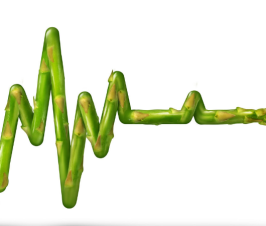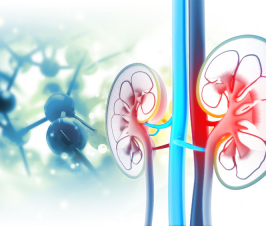There is an almost ubiquitous complaint of fatigue among the current generation. An underlying sense that we’re lacking energy, tired, and overwhelmed seems to be the norm in our modern culture. One aspect of this – and there are more factors – is the health of the Adrenal glands. Our adrenal glands are extremely important for giving us the energy we need throughout the day, as well as the short bursts of adrenaline we need when we get excited, scared, or need to exert ourselves physically. But, under the current demands that most of us are living, the adrenals are being asked to give us as much energy as it can possibly spare, for 10 hours a day, every day – and then we’re using stimulants like caffeine and sugar to ask for even more. Poor little guys:(
If you are like the rest of us and live a chaotic life with too much on your schedule, and responsibilities which keep you up at night, your adrenals are likely being taxed, and if you’re already suffering from fatigue and a lack of energy, addressing your adrenal health is likely to be a beneficial aspect of regaining your energy, and health – though there may be other items as well.
Being Kind to the Adrenals
1. | Get Adequate Sleep
It seems like every week I’m writing about the importance of getting proper sleep. Adequate sleep is crucial to bring the body back into balance, no matter what the cause of dis-ease may be. However, specifically to the adrenals, sleep helps regulate cortisol (the stress hormone) levels, which is produced by the adrenal gland. By getting enough sleep, and sleeping at the same time everyday, the adrenal gland is better able to reset on a daily basis.
2. | Try to Calm Down
Whatever this may look like to you, try to lower the amount of stress you’re experiencing throughout the day. Even though you may have a crazy schedule doesn’t mean you have to turn into a crazy person. Awareness practices, mindfulness, meditation, yoga, walking, exercise, and even therapy are excellent ways to address the stress that we feel, and help regulate our response to what is going on in our lives.
3. | Adrenals Love Vegetables
Eat as many as you can! You can’t eat too many vegetables. Try to get a solid variety of colors and types: squashes, beets, cauliflower, broccoli, asparagus, brussel sprouts, zucchini, and string beans are all excellent. Colored vegetables are full of vitamins and minerals, and antioxidants that lower inflammation and help give the body what it needs to repair. Fruits are great too, and can be a wonderful way to satisfy your sweet tooth in a beneficial way.
Get Rid of the Junk
1. | Lower Inflammatory Food Intake
Its almost become a buzzword, but inflammation is really detrimental to the body when it occurs chronically. The foods we eat are primarily what causes this chronic state of inflammation, and is largely within our control to lower. The top 3 inflammatory foods are: Wheat/gluten, dairy and sugar. Just because you’re not “allergic” to these foods, doesn’t mean they are doing you any favors. Lowering intake of them may help drastically; why not give it a try – take them out of your diet for a month or so and see how you feel.
2. | Lower Stimulant Intake
I know, I know, “the coffee is keeping you vertical.” Its also putting an incredible amount of strain on your adrenal glands, asking them to produce more and more adrenaline. You’re definitely going to be tired, because you are tired. Try to replace with green tea, or cut out all caffeine over a week vacation or during a time when you’re sick, and can actually get the rest your body wants.
3. | Reduce Toxic Exposure
The toxins that plague our bodies everyday are bad enough, we don’t need to add even more. Try to find areas where you can minimize the toxins you’re putting into your body – plastics, artificial scents, lotions, and things with lots of chemicals in them. Try to cook in glass or stainless steel; non-stick coatings are very toxic and can leach into your food.
4. | Limit Alcohol
The best way to explain this one is that alcohol is a toxin as well. If you’re having problems with your health, your body will certainly benefit from cutting out the alcohol.
 Node Smith, associate editor for NDNR, is a fifth year naturopathic medical student at NUNM, where he has been instrumental in maintaining a firm connection to the philosophy and heritage of naturopathic medicine amongst the next generation of docs. He helped found the first multi-generational experiential retreat, which brings elders, alumni, and students together for a weekend campout where naturopathic medicine and medical philosophy are experienced in nature. Three years ago he helped found the non-profit, Association for Naturopathic ReVitalization (ANR), for which he serves as the board chairman. ANR has a mission to inspire health practitioners to embody the naturopathic principles through experiential education. Node also has a firm belief that the next era of naturopathic medicine will see a resurgence of in-patient facilities which use fasting, earthing, hydrotherapy and homeopathy to bring people back from chronic diseases of modern living; he is involved in numerous conversations and projects to bring about this vision.
Node Smith, associate editor for NDNR, is a fifth year naturopathic medical student at NUNM, where he has been instrumental in maintaining a firm connection to the philosophy and heritage of naturopathic medicine amongst the next generation of docs. He helped found the first multi-generational experiential retreat, which brings elders, alumni, and students together for a weekend campout where naturopathic medicine and medical philosophy are experienced in nature. Three years ago he helped found the non-profit, Association for Naturopathic ReVitalization (ANR), for which he serves as the board chairman. ANR has a mission to inspire health practitioners to embody the naturopathic principles through experiential education. Node also has a firm belief that the next era of naturopathic medicine will see a resurgence of in-patient facilities which use fasting, earthing, hydrotherapy and homeopathy to bring people back from chronic diseases of modern living; he is involved in numerous conversations and projects to bring about this vision.

















